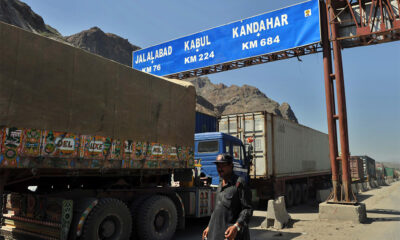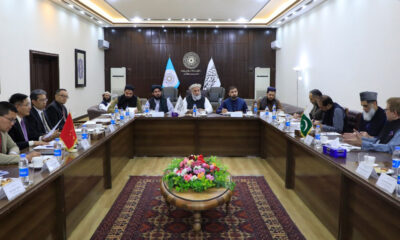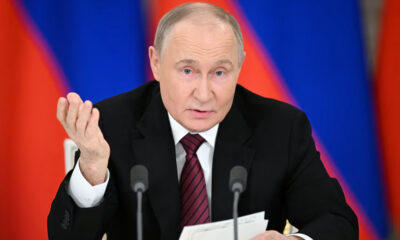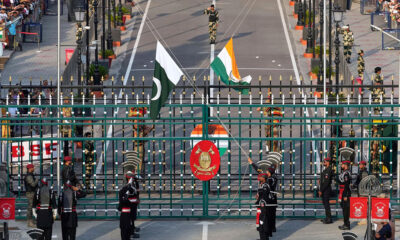World
Israel, Hamas start first truce in Gaza war
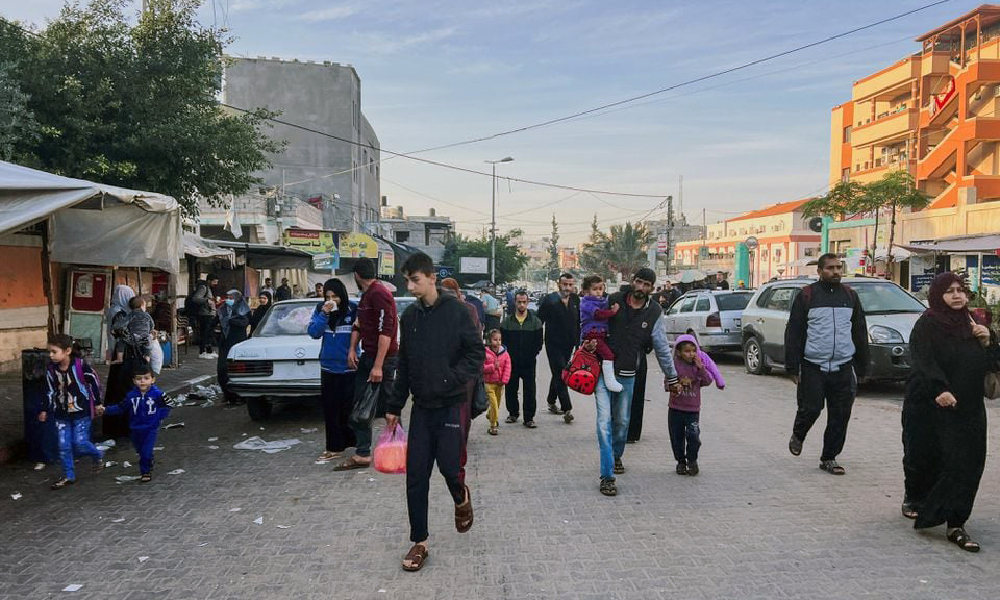
Israel and Hamas started a four-day ceasefire on Friday with the militants set to release 13 Israeli women and child hostages later in the day and aid to flow into the besieged Gaza enclave, the first pause in the near seven-week-old war, Reuters reported.
The truce began at 7 a.m. (0500 GMT), involving a comprehensive ceasefire in north and south Gaza, and was to be followed by the release of some of the more than 200 hostages taken by Hamas during the Islamists’ Oct. 7 attack inside Israel, mediators in Qatar said. A number of Palestinian prisoners held in Israeli prisons were to be freed in exchange.
Fighting raged on in the hours leading up to the truce, with officials inside the Hamas-ruled enclave saying a hospital in Gaza City was among the targets bombed. Both sides also signalled the pause would be temporary before fighting resumes.
The Indonesian hospital was reeling under relentless bombing, operating without light and filled with bedridden old people and children too weak to be moved, Gaza health officials said. Al-Jazeera quoted Mounir El Barsh, the Gaza health ministry director, as saying a patient, a wounded woman, was killed and three others injured, read the report.
Additional aid would start flowing into Gaza and the first hostages, including elderly women, would be freed at 4 p.m. (1400 GMT), with the total number rising to 50 over the four days, Qatar’s foreign ministry spokesperson Majed Al-Ansari said in Doha.
Egypt said 130,000 litres of diesel and four trucks of gas will be delivered daily to Gaza when the truce starts, and that 200 trucks of aid would enter Gaza daily.
Palestinians were expected to be released from Israeli jails, the Qatari spokesperson told reporters. “We all hope that this truce will lead to a chance to start a wider work to achieve a permanent truce.”
Hamas confirmed on its Telegram channel that all hostilities from its forces would cease.
But Abu Ubaida, spokesperson for Hamas’ armed wing, later referred to “this temporary truce” in a video message that called for an “escalation of the confrontation with (Israel) on all resistance fronts”, including the Israeli-occupied West Bank where violence has surged since the Gaza war erupted almost seven weeks ago, Reuters reported.
Israel’s military said its troops would stay behind a ceasefire line inside Gaza, without giving details of its position.
“These will be complicated days and nothing is certain,” Israeli military spokesperson Daniel Hagari said.
“Control over northern Gaza is the first step of a long war, and we are preparing for the next stages,” he added. Israel had received an initial list of hostages to be freed and was in touch with families, the prime minister’s office said.
Israel launched its devastating invasion of Gaza after gunmen from Hamas burst across the border fence on Oct. 7, killing 1,200 people and seizing about 240 hostages, according to Israeli tallies.
Since then, Israel has rained bombs on the tiny enclave, killing some 14,000 Gazans, around 40% of them children, according to Palestinian health authorities.
“People are exhausted and are losing hope in humanity,” U.N. Palestinian refugee agency UNRWA’s Commissioner-General Philippe Lazzarini said on Thursday after a visit to Gaza, referring to “unspeakable suffering” in the enclave.
“They need respite, they deserve to sleep without being anxious about whether they will make it through the night. This is the bare minimum anyone should be able to have.”
Ahead of the ceasefire, fighting became even more intense on Thursday, with Israeli jets hitting more than 300 targets and troops engaged in heavy fighting around Jabalia refugee camp north of Gaza City, read the report.
An army spokesperson said operations would continue until troops received the order to stop.
International alarm has focused on the fate of hospitals, especially in Gaza’s northern half, where all medical facilities have ceased functioning with patients, staff and displaced people trapped inside.
Israel says Hamas fighters use residential and other civilian buildings, including hospitals, as cover – a charge that Hamas denies.
World
Trump says India, Pakistan agree to ‘full and immediate ceasefire’

U.S. President Donald Trump said on Saturday that India and Pakistan had agreed to a “full and immediate ceasefire” after a fourth day of strikes and counter-strikes against each other’s military installations.
Pakistan’s foreign minister also said both countries had agreed to a ceasefire “with immediate effect” and India’s foreign ministry said it would start at 5 p.m. Indian time (1130 GMT).
“After a long night of talks mediated by the United States, I am pleased to announce that India and Pakistan have agreed to a FULL AND IMMEDIATE CEASEFIRE. Congratulations to both Countries on using Common Sense and Great Intelligence,” Trump said in a post on Truth Social.
The sudden announcement came on a day when fears spiked that the countries’ nuclear arsenals might come into play as Pakistan’s military said a top military and civilian body overseeing its nuclear weapons would meet.
But Pakistan’s defence minister later said no such meeting was scheduled.
At the same time, officials from both sides showed a willingness to take a step back following the day’s exchanges, as the combined civilian death toll on the two sides rose to 66.
“Pakistan and India have agreed to a ceasefire with immediate effect,” Pakistani Foreign minister Ishaq Dar posted on X. “Pakistan has always strived for peace and security in the region, without compromising on its sovereignty and territorial integrity!”
India’s foreign ministry said that the head of Pakistan’s military operations called his Indian counterpart on Saturday afternoon and it was agreed that both sides would stop all firing.
The two heads will speak to each other again on May 12, the ministry added.
The fighting began on Wednesday when India carried out strikes on what it said was “terrorist infrastructure” in Pakistani Kashmir and Pakistan, two weeks after 26 people were killed in an attack on Hindu tourists in Indian Kashmir.
Pakistan denied India’s accusations that it was involved in the tourist attack. Since Wednesday, the two countries have exchanged cross-border fire and shelling, and sent drones and missiles into each other’s airspace.
The countries have been locked in a dispute over Kashmir since they were born after the end of British colonial rule in 1947. Hindu-majority India and Islamic Pakistan both claim Kashmir in full but rule it in part.
They have gone to war three times since, including twice over Kashmir, and clashed several times.
India blames Pakistan for an insurgency in its part of Kashmir that began in 1989 and has killed tens of thousands. It also blames Pakistani Islamist militant groups for attacks elsewhere in India.
Pakistan rejects both charges. It says it only provides moral, political and diplomatic support to Kashmiri separatists.
(Reuters)
World
US offers to help India and Pakistan start talks, G7 also urges dialogue
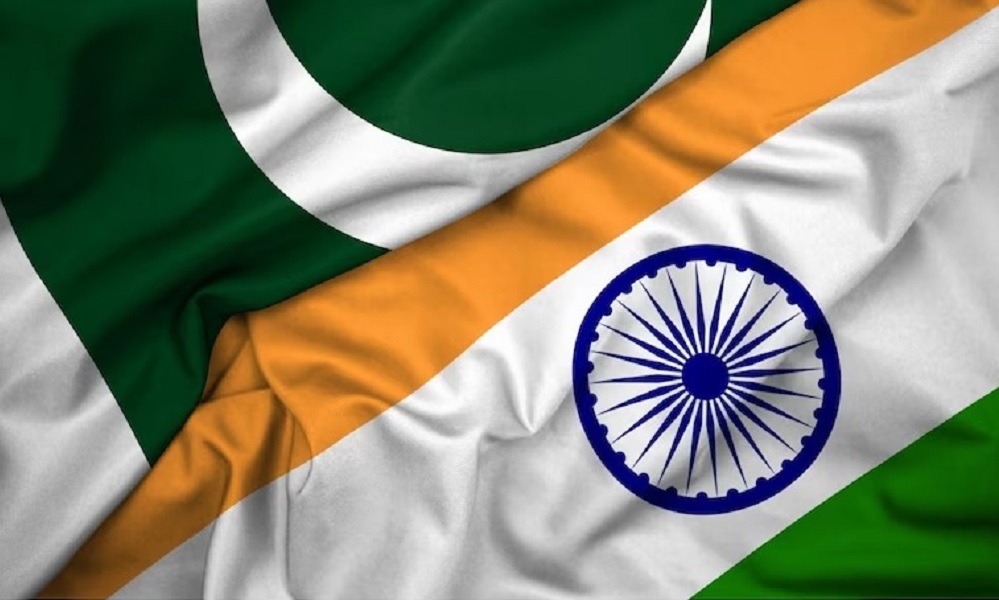
The U.S. government said it offered assistance to make India and Pakistan start “constructive talks” while the Group of Seven (G7) major countries also urged the Asian neighbors to engage in direct dialogue amid heightened hostilities.
World powers have raised the alarm over the latest escalation in the decades-old India-Pakistan rivalry. India hit Pakistan with air strikes and missiles on Wednesday and since then the nuclear-armed countries have been clashing daily while launching strikes against each other’s military installations on Saturday. Dozens have been killed.
The U.S., especially Secretary of State Marco Rubio, has held regular talks with both India and Pakistan since late April and urged them to de-escalate.
The U.S. State Department late on Friday and early Saturday released three statements on Rubio’s calls with Pakistan Army Chief Asim Munir, and the foreign ministers of India and Pakistan.
It said Rubio urged them to “re-establish direct communication to avoid miscalculation” while offering U.S. assistance “in starting constructive talks” to avoid future conflicts.
Michael Kugelman, a Washington-based South Asia analyst and writer for the Foreign Policy magazine, said Rubio’s decision to call the army chief directly was “the most consequential move the U.S. has made” since the start of the crisis:
“If you want to talk to the Pakistanis about de-escalation, you need to talk to General Munir.”
President Donald Trump said earlier this week the rising tensions were a shame. U.S. Vice President JD Vance said a war would be “none of our business.”
In recent years, India has been seen as a partner by Western powers to counter China’s rising influence. Pakistan is a U.S. ally although its importance has diminished since Washington’s 2021 withdrawal from neighboring Afghanistan.
In a G7 statement, the foreign ministers of Canada, France, Germany, Italy, Japan, the U.S., Britain and the European Union said they “strongly condemn” an April 22 Islamist militant attack in which 26 people were killed in India-administered Kashmir. India blamed Pakistan, which denied the accusations and called for a neutral probe.
“We call for immediate de-escalation and encourage both countries to engage in direct dialogue towards a peaceful outcome,” the G7 top diplomats said.
Muslim-majority Kashmir is claimed in full but ruled only in part by both Hindu-majority India and Islamic Pakistan and has seen wars, insurgency and diplomatic stand-offs over the decades.
(Reuters)
World
Macron to meet Syrian president on Wednesday, expected to discuss security
Sharaa in February received an invitation from Macron to visit France.
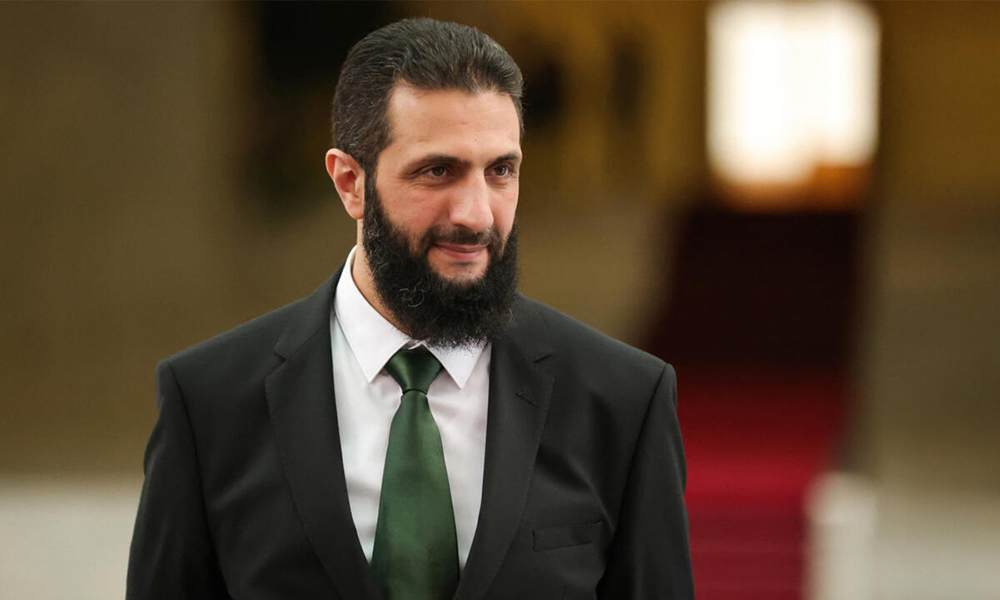
French President Emmanuel Macron will host a meeting with Syria’s President Ahmed al-Sharaa in Paris on Wednesday, the French presidency said on Tuesday.
During the meeting, Macron will reaffirm France’s support for the construction of a “free, stable and sovereign Syria that respects all the components of the Syrian society,” the statement said.
The visit, the first for Sharaa to a European country since the overthrow of Bashar al-Assad, is expected to address several security challenges faced by the new Syrian government, with particular emphasis on the repeated Israeli attacks on Syria’s sovereignty, according to the state-run Syrian news agency SANA.
Sharaa in February received an invitation from Macron to visit France, Reuters reported.
In January, Sharaa was named as interim president and pledged to form an inclusive transitional government that would build up Syria’s gutted public institutions and run the country until elections, which he said could take up to five years to hold.
Israel has escalated military operations in Syria since rebels ousted Assad in December, with bombings across the country and ground forces entering its southwest, while calling for Syria to remain decentralised and isolated, read the report.
It has framed its stance around its suspicion of Sharaa – who once headed a branch of al Qaeda before renouncing ties to the group in 2016 – and a desire to protect the Druze, a minority sect that is an offshoot of Islam with followers in Syria, Lebanon and Israel.
-

 Latest News5 days ago
Latest News5 days agoCabinet Meeting convened to discuss Afghanistan’s population census plan
-

 Regional4 days ago
Regional4 days agoAt least 26 civilians killed in Indian strikes on Pakistan: Islamabad
-
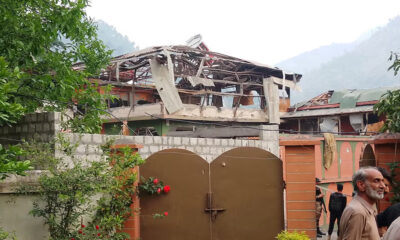
 Regional4 days ago
Regional4 days agoIndia strikes Pakistan over Kashmir tourist killings
-

 Science & Technology4 days ago
Science & Technology4 days agoSkype ends operations after 22 years of service
-

 Latest News4 days ago
Latest News4 days agoIslamic Emirate of Afghanistan ‘concerned’ over rising tensions between Pakistan and India
-

 World4 days ago
World4 days agoMacron to meet Syrian president on Wednesday, expected to discuss security
-
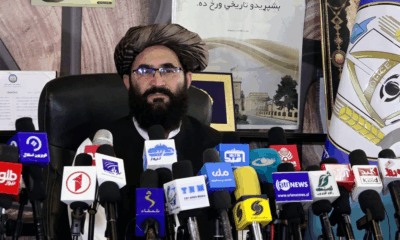
 Latest News4 days ago
Latest News4 days agoPassport Directorate earns nearly 13 billion AFN in one year
-

 Health4 days ago
Health4 days agoWHO confirms second Polio case in Afghanistan


